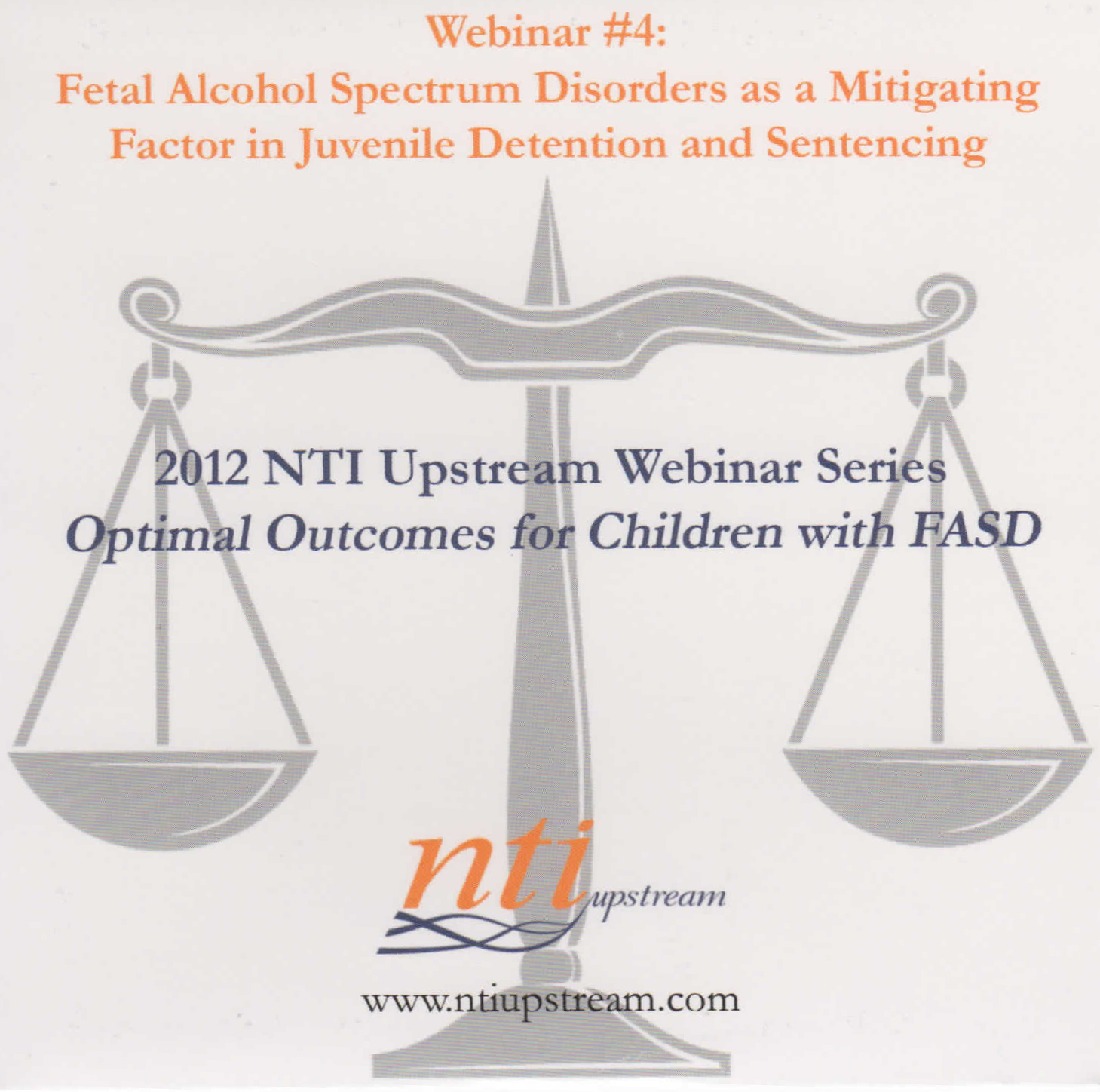 Image 1 of 1
Image 1 of 1


2012 Webinar #4 DVD Video: Is FASD a Mitigating Factor in Adjudication and Sentencing?
On October 26, 2010, the State of Arizona executed Jeffrey Landrigan. This was after the United States Supreme Court lifted a lower court’s stay of execution. Among the issues the Court considered in that case was whether Landrigan was entitled to a new sentencing hearing because his attorney failed to present any evidence in mitigation, despite the young man’s diagnosis of Fetal Alcohol Syndrome. Justice Clarence Thomas, who wrote the majority opinion, stated that the mitigating evidence Landrigan sought to introduce, i.e. evidence of serious organic brain damage associated with Fetal Alcohol Syndrome, “would not have changed the result.”2 This was in spite of the fact that Cheryl Hendrix, the retired Arizona judge who presided over Landrigan’s trial, submitted a declaration on the defendant’s behalf stating that “Mr. Landrigan would not have been sentenced to death,”3 if she had been given the medical evidence of the defendant’s brain damage and other factors. Some courts say FASD deserves to be considered as a mitigating factor, other courts say it does not, making it a tricky but interesting legal issue. This webinar will explore the brain-based damage that prenatal alcohol exposure causes, its relationship to high rates of incarceration of youth, and address its implications for adjudicating and sentencing affected children and youth.
On October 26, 2010, the State of Arizona executed Jeffrey Landrigan. This was after the United States Supreme Court lifted a lower court’s stay of execution. Among the issues the Court considered in that case was whether Landrigan was entitled to a new sentencing hearing because his attorney failed to present any evidence in mitigation, despite the young man’s diagnosis of Fetal Alcohol Syndrome. Justice Clarence Thomas, who wrote the majority opinion, stated that the mitigating evidence Landrigan sought to introduce, i.e. evidence of serious organic brain damage associated with Fetal Alcohol Syndrome, “would not have changed the result.”2 This was in spite of the fact that Cheryl Hendrix, the retired Arizona judge who presided over Landrigan’s trial, submitted a declaration on the defendant’s behalf stating that “Mr. Landrigan would not have been sentenced to death,”3 if she had been given the medical evidence of the defendant’s brain damage and other factors. Some courts say FASD deserves to be considered as a mitigating factor, other courts say it does not, making it a tricky but interesting legal issue. This webinar will explore the brain-based damage that prenatal alcohol exposure causes, its relationship to high rates of incarceration of youth, and address its implications for adjudicating and sentencing affected children and youth.
Approx. 50 minutes
DVD format: All regions
Presented by: Ira J. Chasnoff, MD
